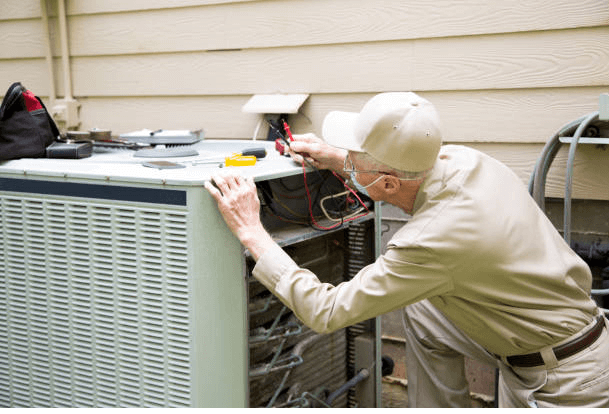Your HVAC (Heating, Ventilation, and Air Conditioning) system is essential to your home, providing comfort and ensuring a pleasant indoor environment. However, these systems can experience wear and tear over time, leading to inefficient operation, poor air quality, and rising energy bills. When faced with problems, homeowners often wonder whether repairing or replacing their HVAC units is better. Discover how to determine when it’s time for an upgrade and better understand optimal comfort and savings.
- HVAC Unit Is 10+ Years Old
One of the primary factors to consider is the age of your HVAC system. Typically, the average lifespan of these units ranges between 10 to 15 years. If your system has crossed the decade mark, it might be time to start thinking about a replacement. Older systems become less energy-efficient, resulting in higher energy bills and decreased performance.
- Blowing Warm Air
If your HVAC system is blowing warm air or not cooling your home effectively, it could indicate a serious issue. While this could be a problem that requires a simple repair, it’s important to consider the age and condition of your system. A professional inspection can help determine whether it’s a minor fix or a sign that your unit needs replacement.
- Poor or Weak Air Flow
Various factors, including clogged filters, ductwork issues, or a failing blower motor, can cause insufficient airflow. While some of these problems can be resolved with repairs, recurring air flow issues may indicate a larger problem within your HVAC system. Consult a professional technician to assess the situation and determine the best action.
- Loud or Unusual Noises
Unusual noises from your HVAC system, such as grinding, rattling, or squealing, can cause concern. These noises often indicate mechanical issues or worn-out components like valves for Goyen USA. While some repairs may address the problem, older units with persistent noise issues might require replacement. A professional can diagnose the source of the noise and provide appropriate recommendations.

- Humidity in the Home
An HVAC system is crucial in maintaining optimal humidity levels within your home. If you notice excessive moisture, condensation, or a persistent muggy feeling, it could signify that your system can no longer control humidity adequately. In such cases, upgrading to a more advanced system can improve humidity control and enhance indoor comfort.
- Foul Odors
Unpleasant odours from your HVAC system can indicate mould, mildew, or other contaminants within the unit. These issues can impact indoor air quality and pose health risks. While some cases may be resolved with thorough cleaning and repairs, persistent foul odours may necessitate a system upgrade to ensure cleaner and healthier air.
- Leaks
Leaks within your HVAC system, such as refrigerant leaks, can lead to inefficient operation and potential environmental hazards. While some leaks can be repaired, recurring leaks or leaks in older systems may warrant a replacement. A professional assessment can determine the severity of the leak and guide you in making the right decision.
- Frequent or Short Cycling
If your HVAC system frequently turns on and off or has short cycles, it can indicate an underlying issue. While certain problems can be resolved through repairs, systems with persistent cycling problems may require replacement. Short cycling can lead to inefficient operation, increased energy consumption, and unnecessary wear and tear on the components. A technician can evaluate the cycling patterns and advise whether replacement or air conditioner repair in Richmond Hill are the best solution.
- High or Rising Energy Bills
A sudden spike in energy bills or a steady increase over time could indicate an inefficient HVAC system. As units age, they become less energy-efficient, increasing operating costs. Upgrading to a newer, more energy-efficient system can significantly reduce energy bills and provide long-term savings. A professional energy audit can help identify the energy consumption of your current system and determine the potential savings with an upgrade.
- Frequent Repair Bills
If you find yourself frequently calling for repairs and dealing with mounting repair bills, it may be a clear sign that your HVAC system is nearing the end of its lifespan. While repairs can address minor issues, constant breakdowns and costly repairs can drain your finances. Investing in a new system will save you money in the long run and provide you with a more reliable and efficient HVAC solution.
Determining whether to repair or replace your HVAC system requires careful consideration of various factors. Remember to consult with HVAC professionals for quality air compressor parts and accessories. Upgrading your HVAC system will not only improve your indoor comfort but also increase energy efficiency, reduce operating costs, and enhance the overall value of your home.
